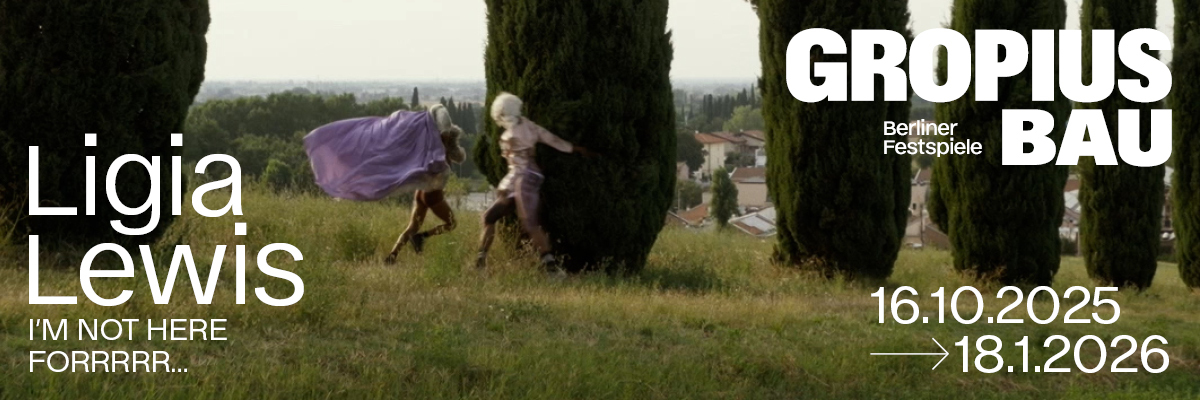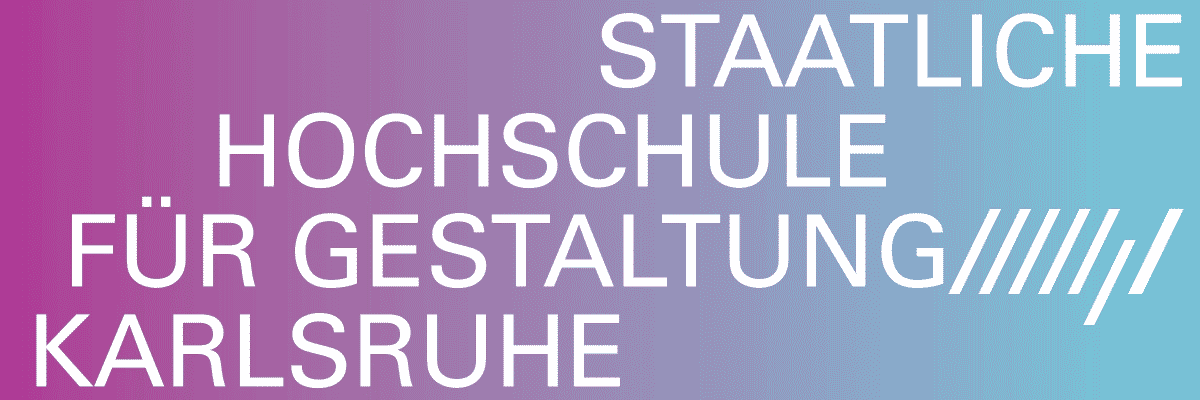
Nicolás Astorga
NINE SWORDS DOWN MY THROAT
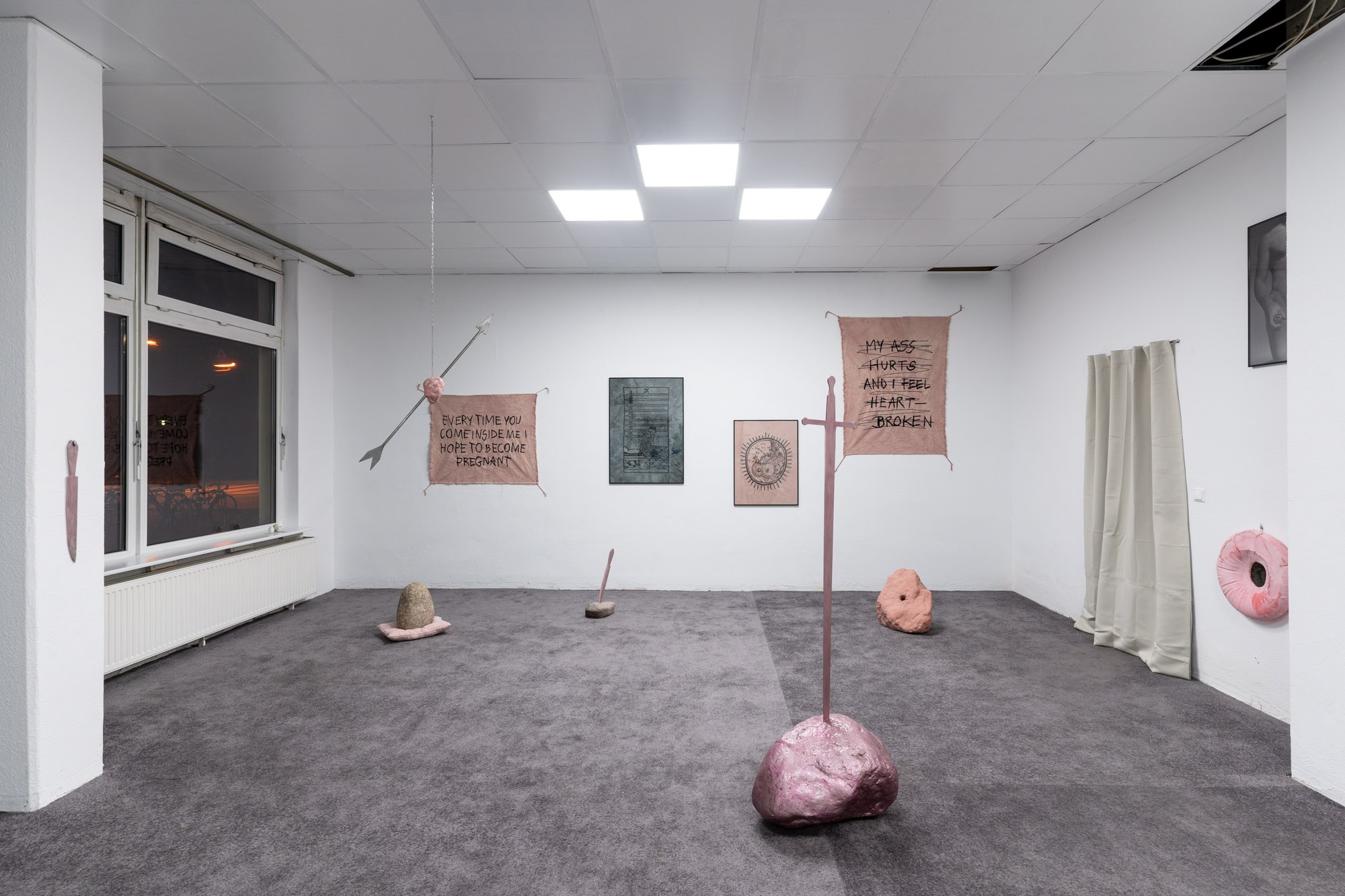
Nine Swords Down My Throat / Exhibition view
Advertisement
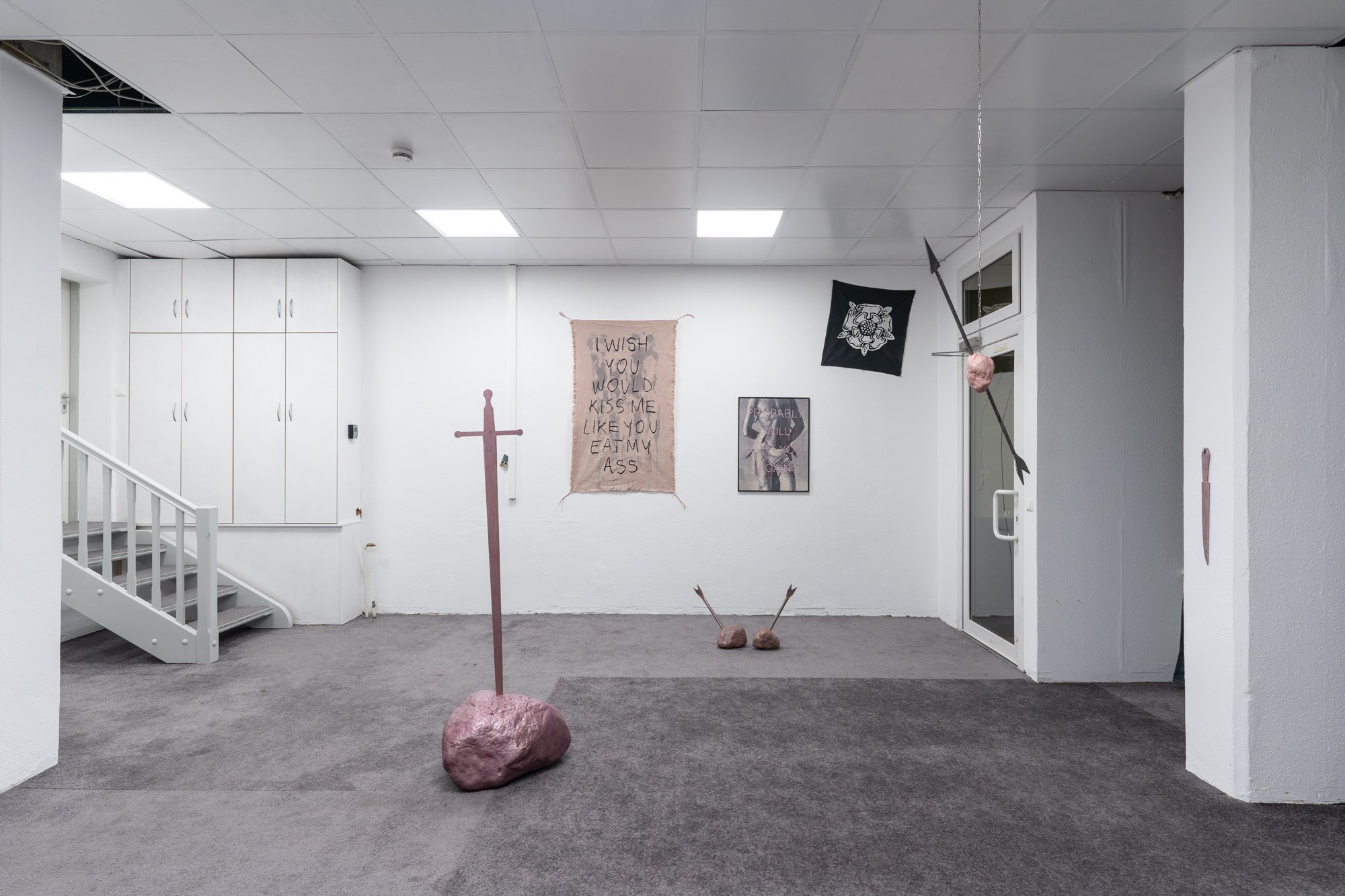
Nine Swords Down My Throat / Exhibition view

MAYBE YOU'RE NOT THE ONE / steel, CNC milled high density polyurethane, nail polish, acrylic enamel, clear coat / 170 x 60 x 60 cm / 2023-2024
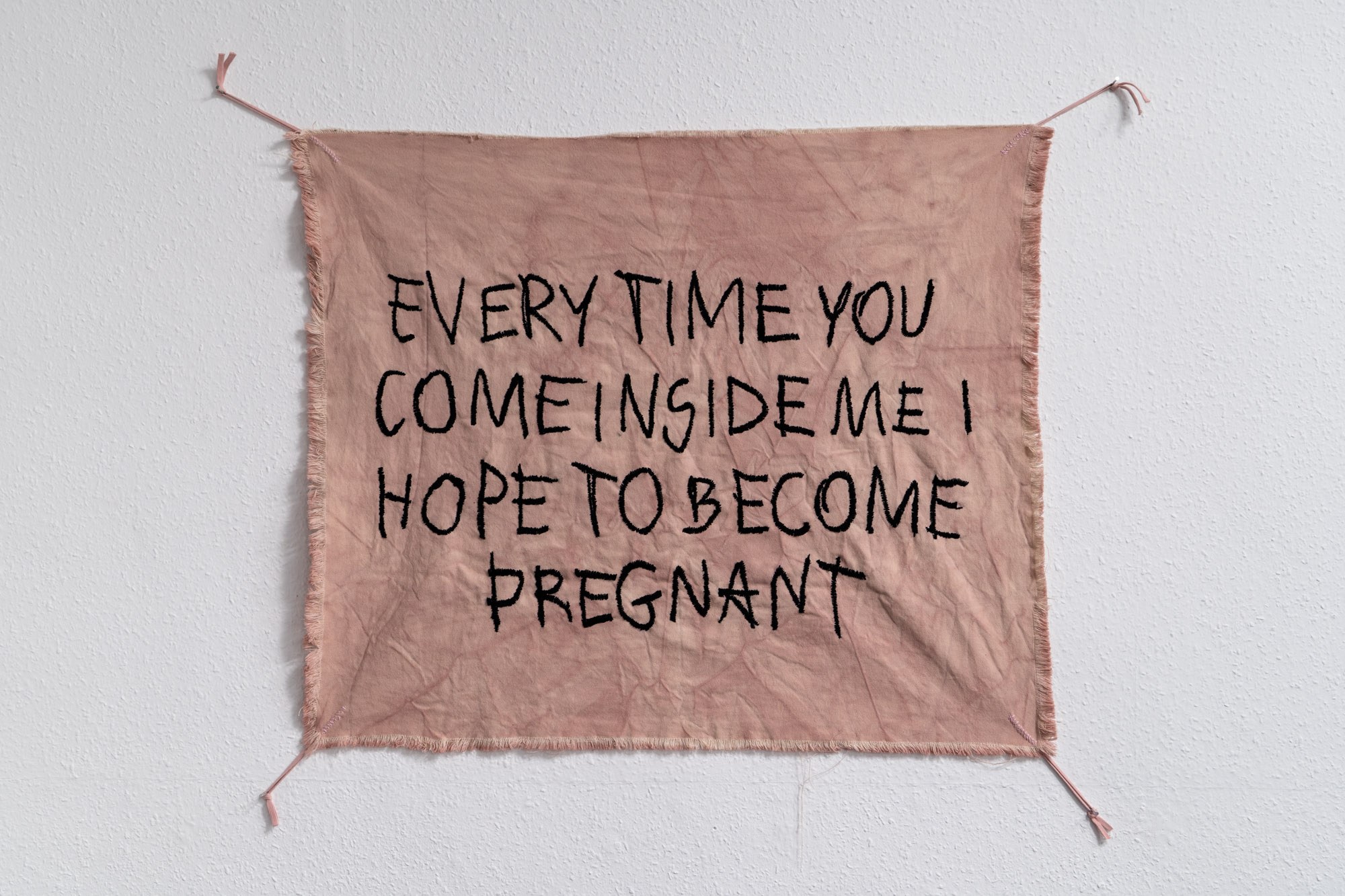
EVERY TIME YOU COME INSIDE ME I HOPE TO BECOME PREGNANT / embroidery on hand dyed cotton / 80 x 100 cm / 2023

STONE BABY / granite stone, hand dyed linen, acrylic wool , steel base / 50 x 50 x 60 cm / 2023
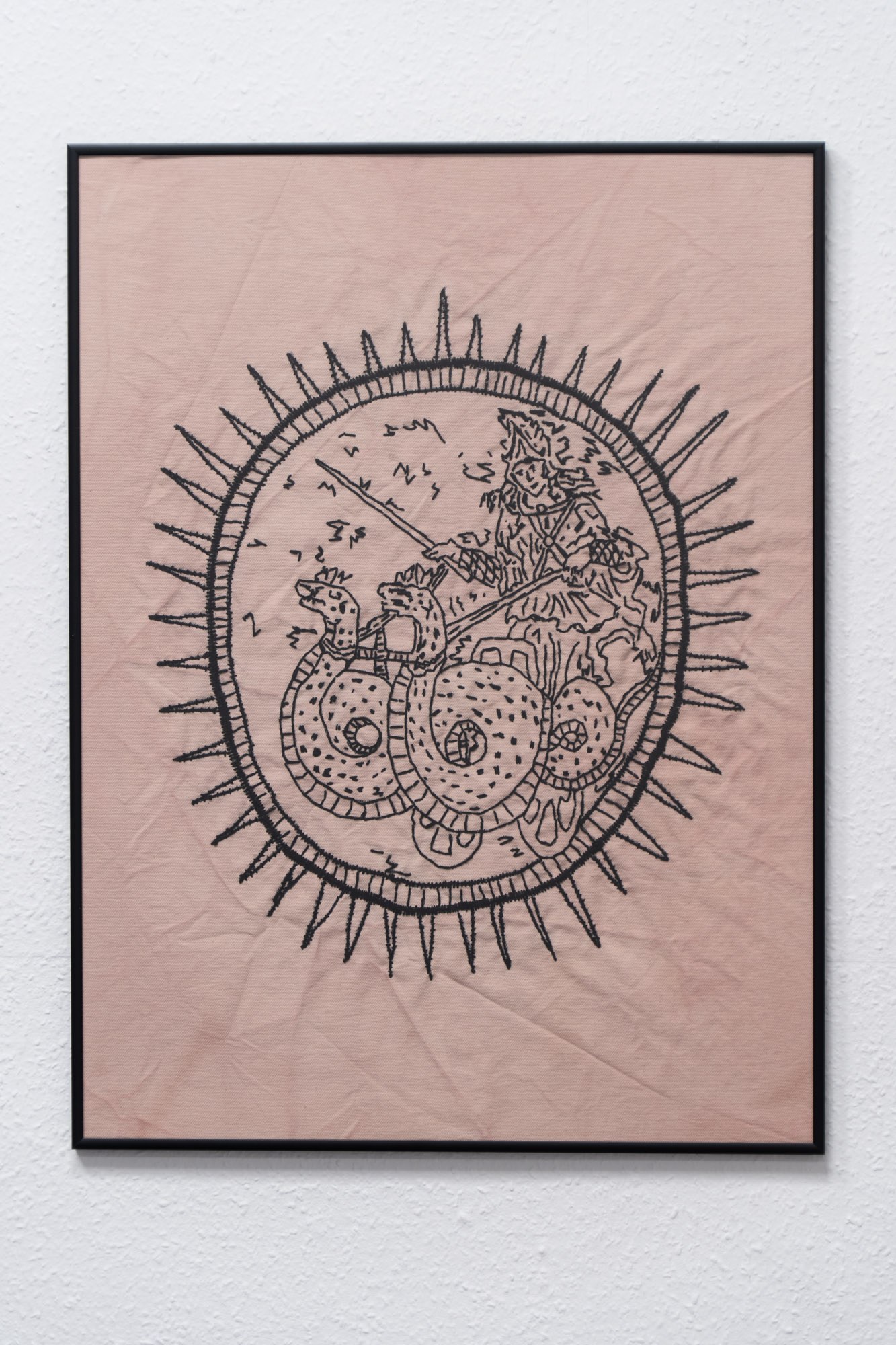
MEDEA / embroidery on hand dyed cotton, aluminum frame / 60 x 80 cm / 2023

THE MORNING WE GOT MARRIED / stainless steel, granite stone, acrylic enamel, clear coat / 50 x 20 x 20 cm / 2023
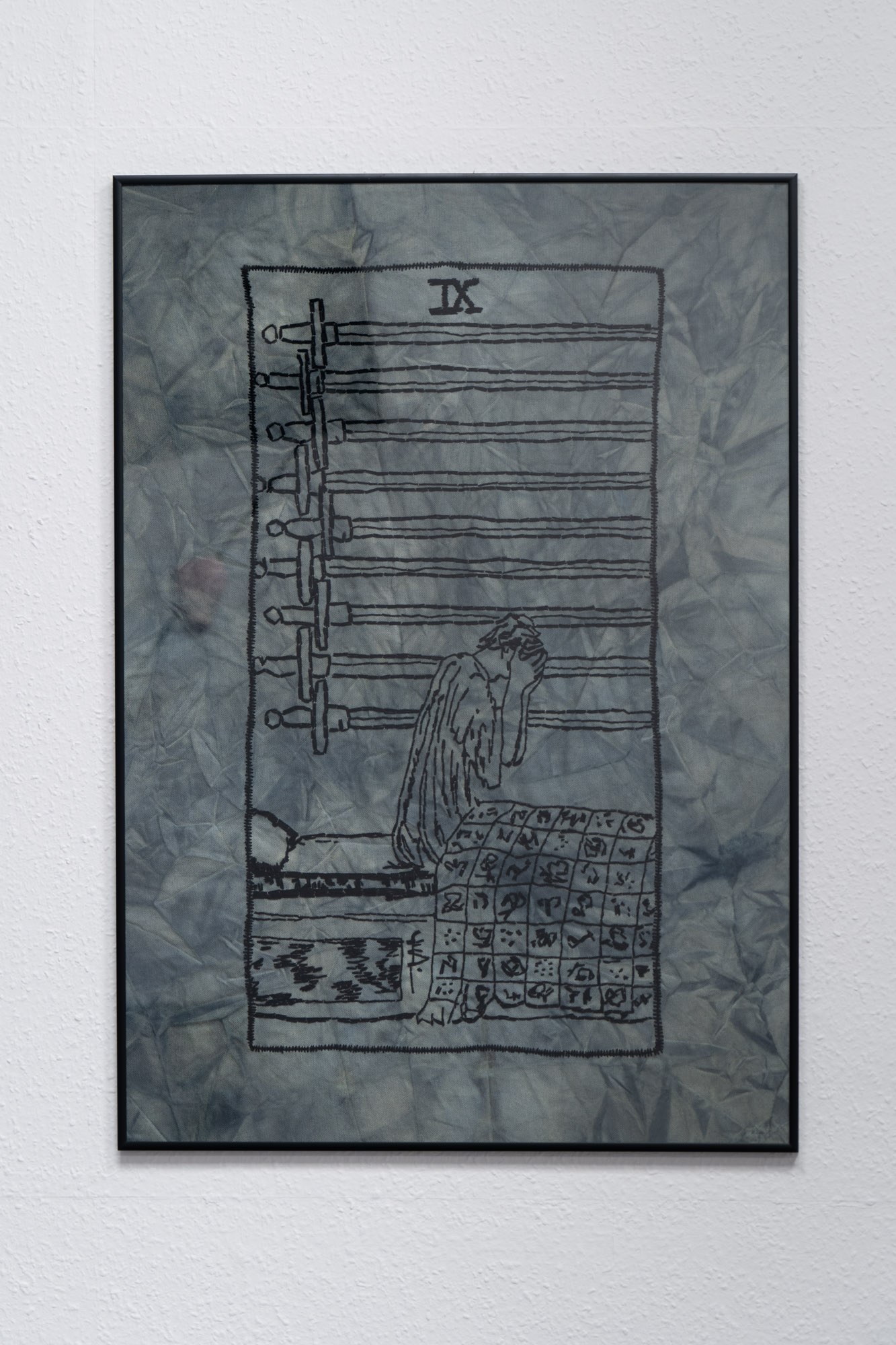
THE NINE OF SWORDS / embroidery on hand dyed cotton, aluminum frame / 70 x 100 cm / 2023
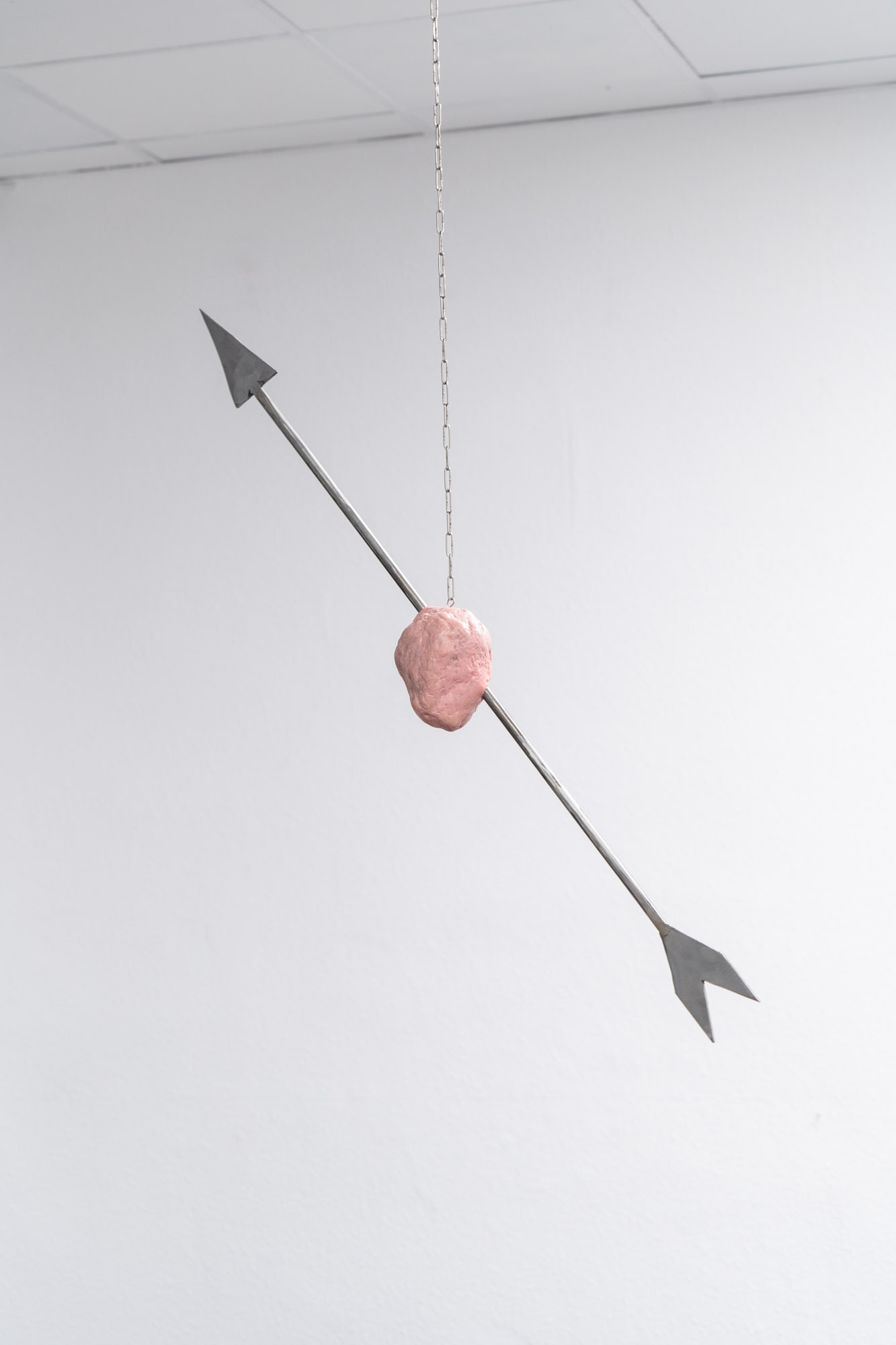
LIEBESENTZUG (LOVE WITHDRAWAL) / quartz stone, pigment, steel, clear coat / 100 x 15 x 15 cm / (without chain) / 2022
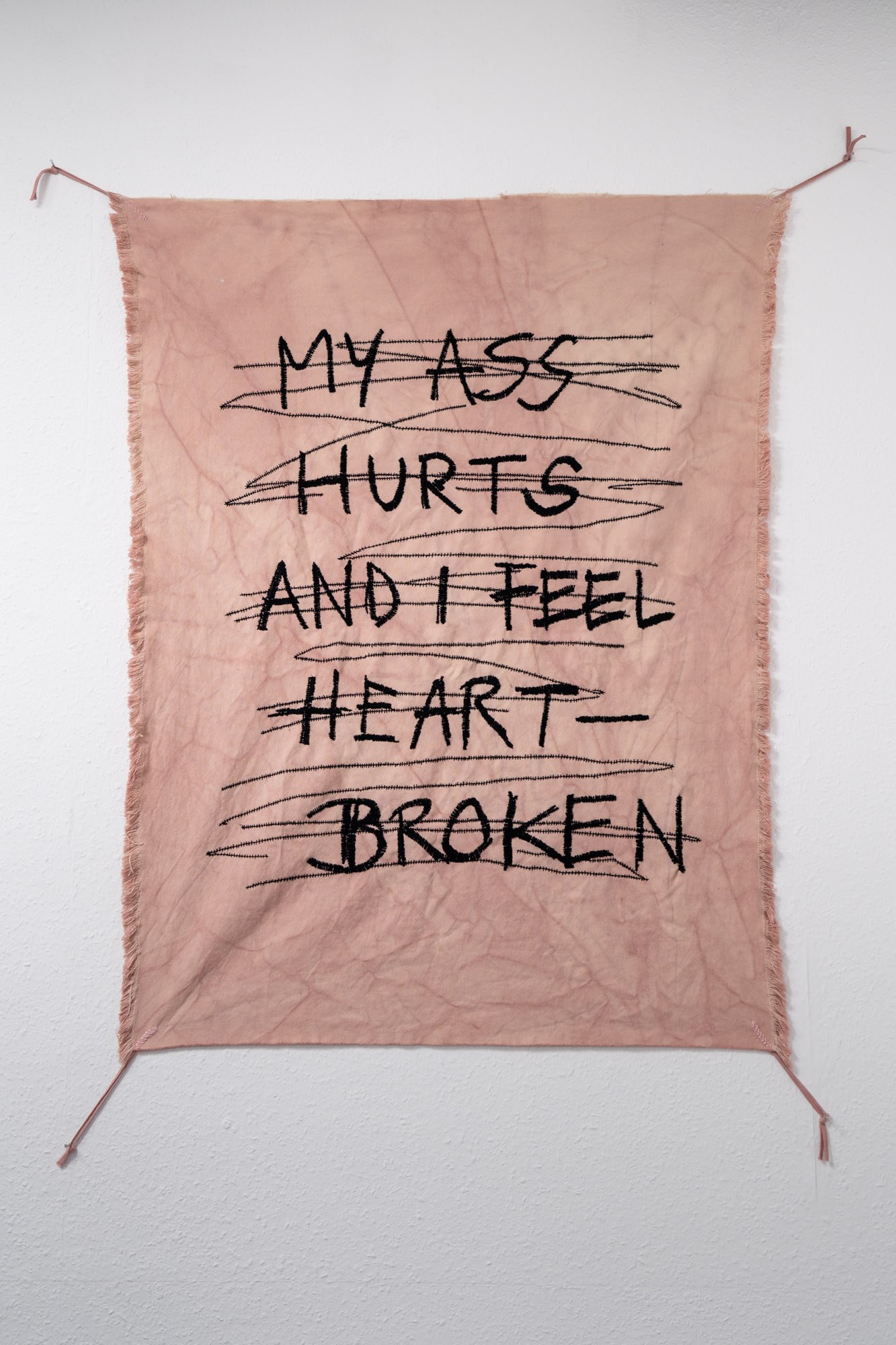
MY ASS HURTS AND I FEEL HEARTBROKEN / embroidery on hand dyed cotton / 120 x 90 cm / 2023
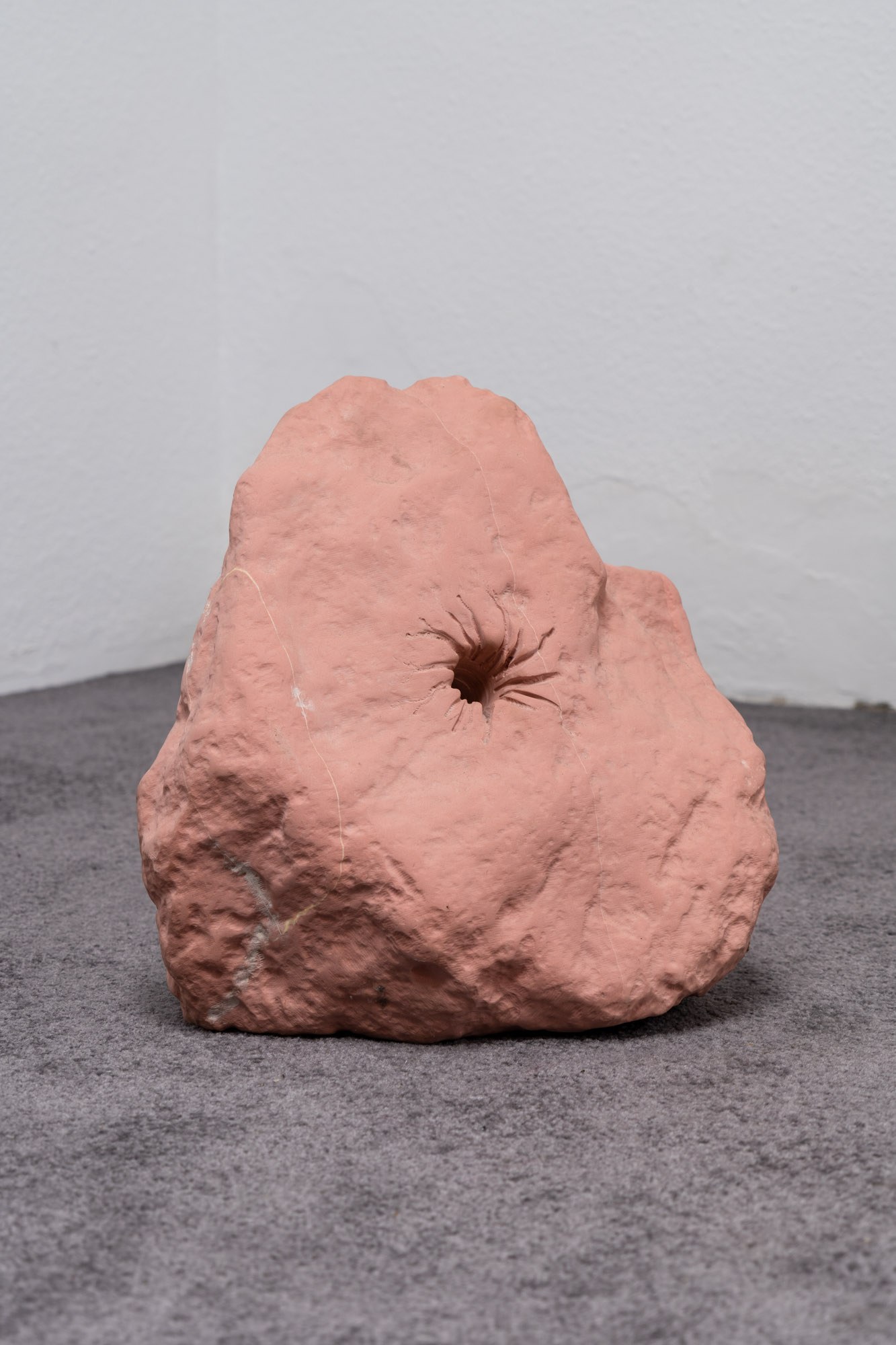
MY HOLE / CNC milled high density polyurethane / 60 x 40 x 30 cm / 2021
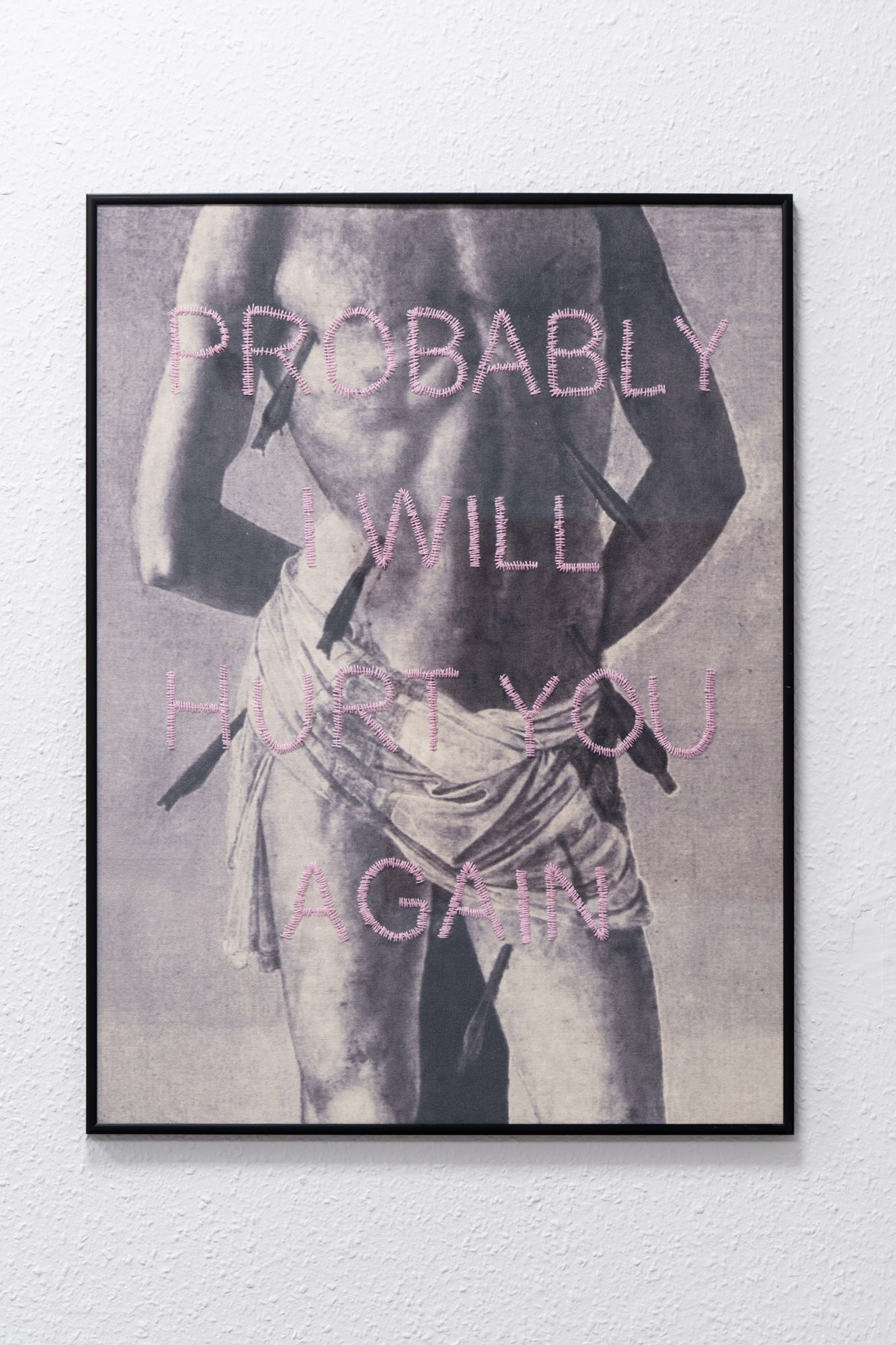
SAINT SEBASTIAN (PROBABLY I WILL HURT YOU AGAIN) / embroidery and ink jet print on cotton, aluminum frame / 60 x 80 cm / 2023
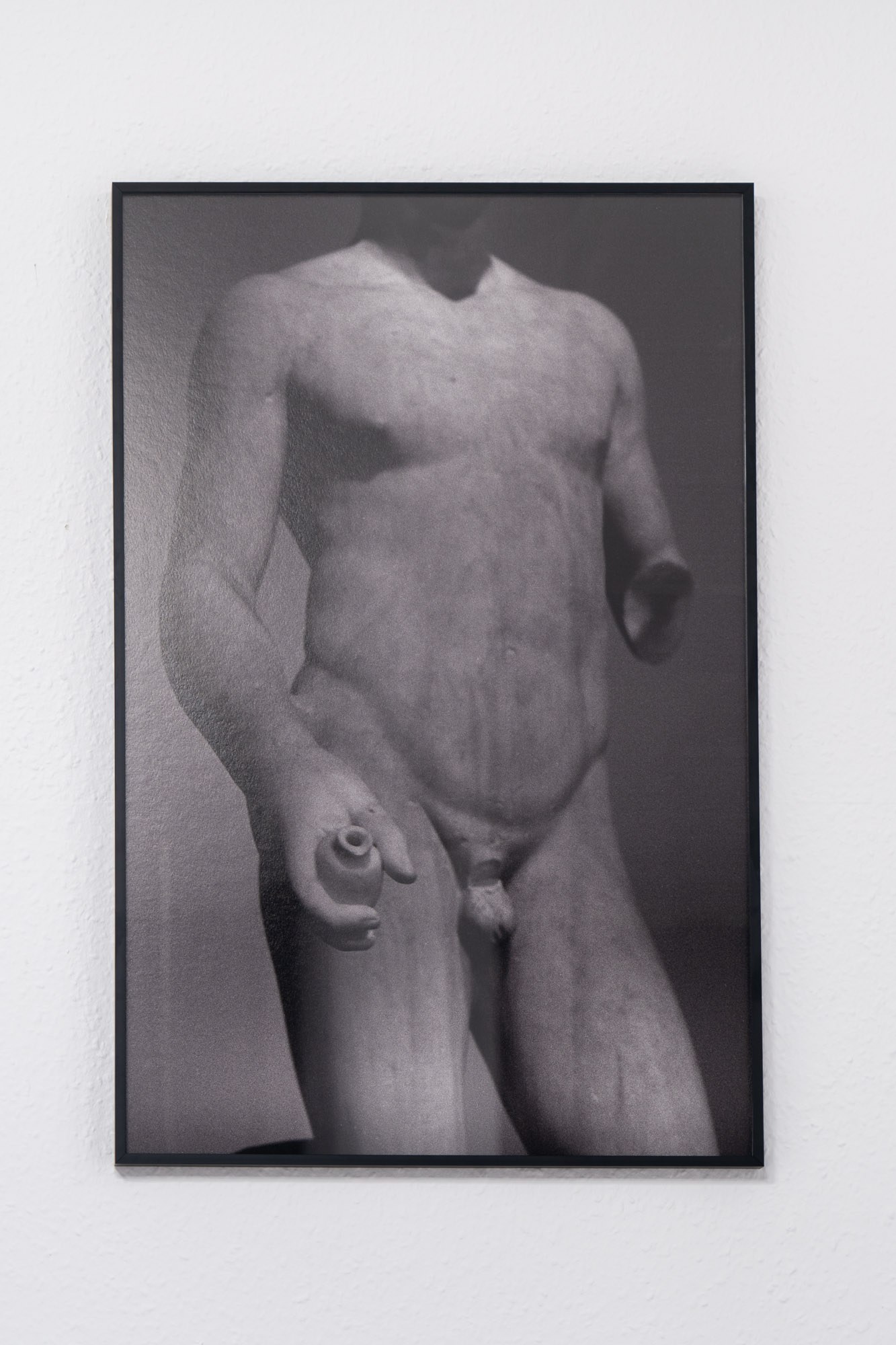
BERLIN ATHLETE by Isidora Gilardi / pigment-inked-print on baryta paper, aluminum frame / 74 x 48 cm / 2021

YOU AND I / granite stone, steel, acrylic enamel, pigment, clear coat / 50 x 20 x 20 cm each / 2023
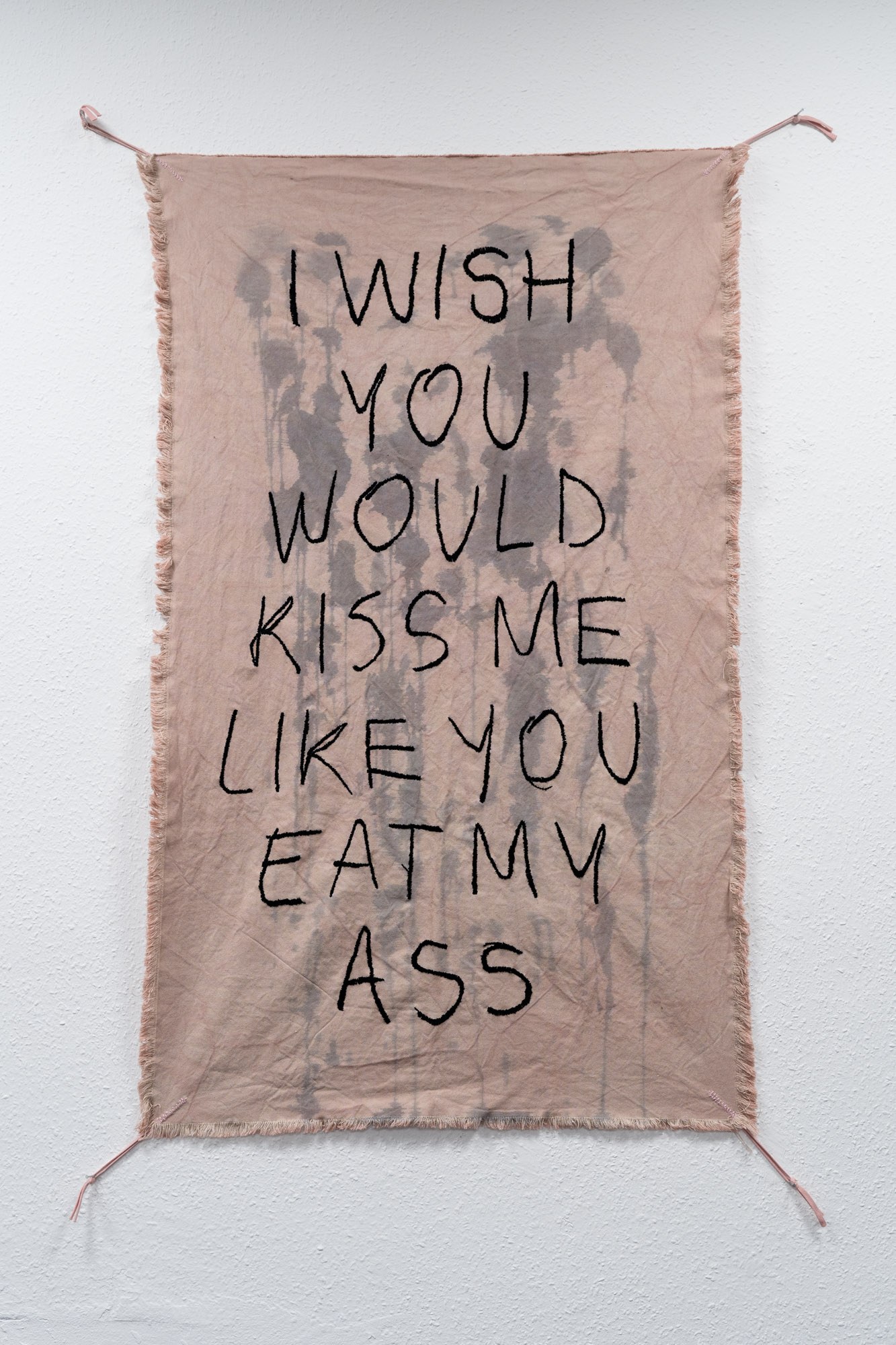
I WISH YOU WOULD KISS ME LIKE YOU EAT MY ASS / embroidery on hand dyed cotton / 150 x 100 cm / 2023
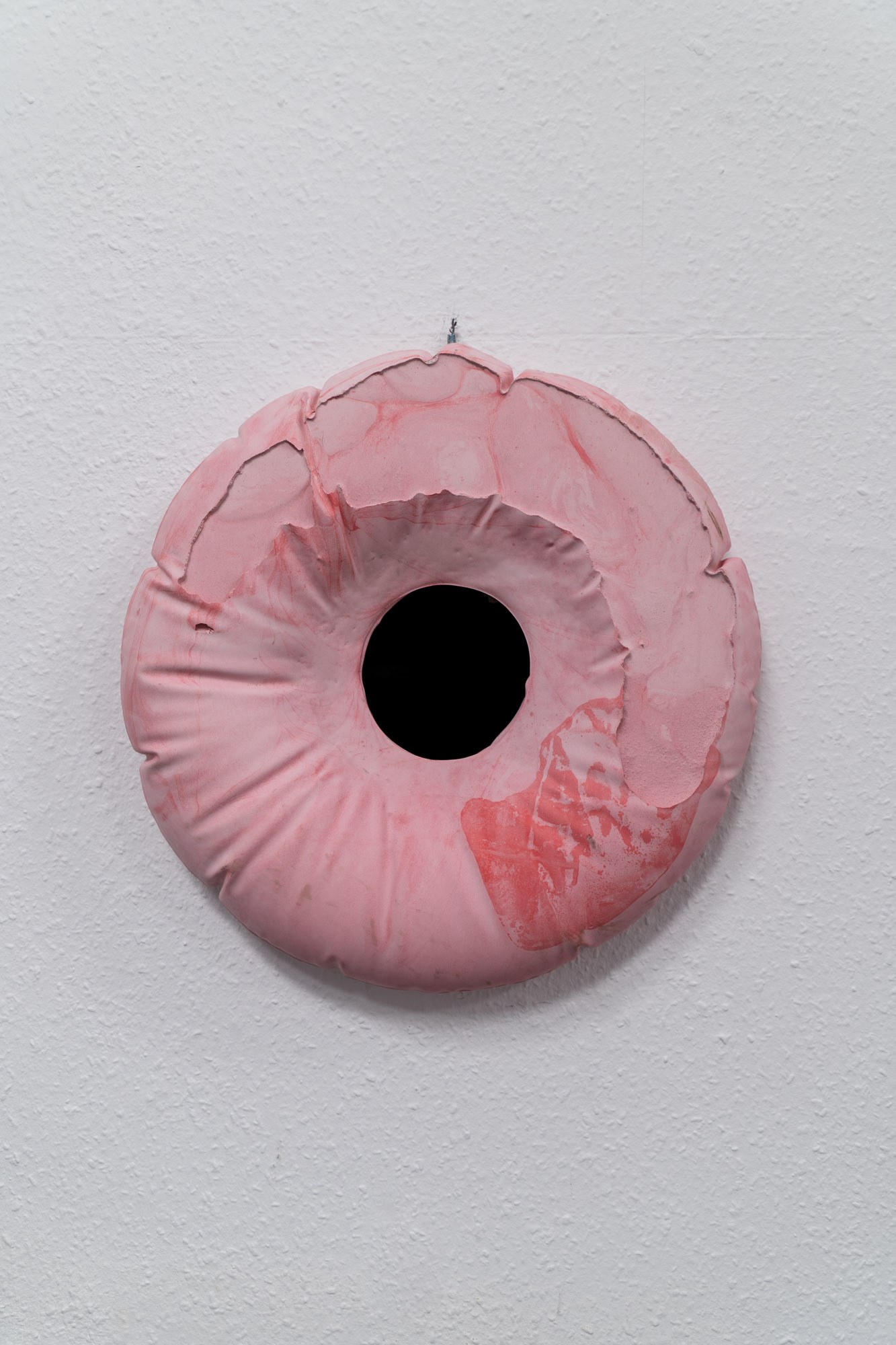
ABYSS (A HOLE THAT CANNOT BE FILLED) / white concrete, pigment / 60 x 60 x 15 cm / 2023
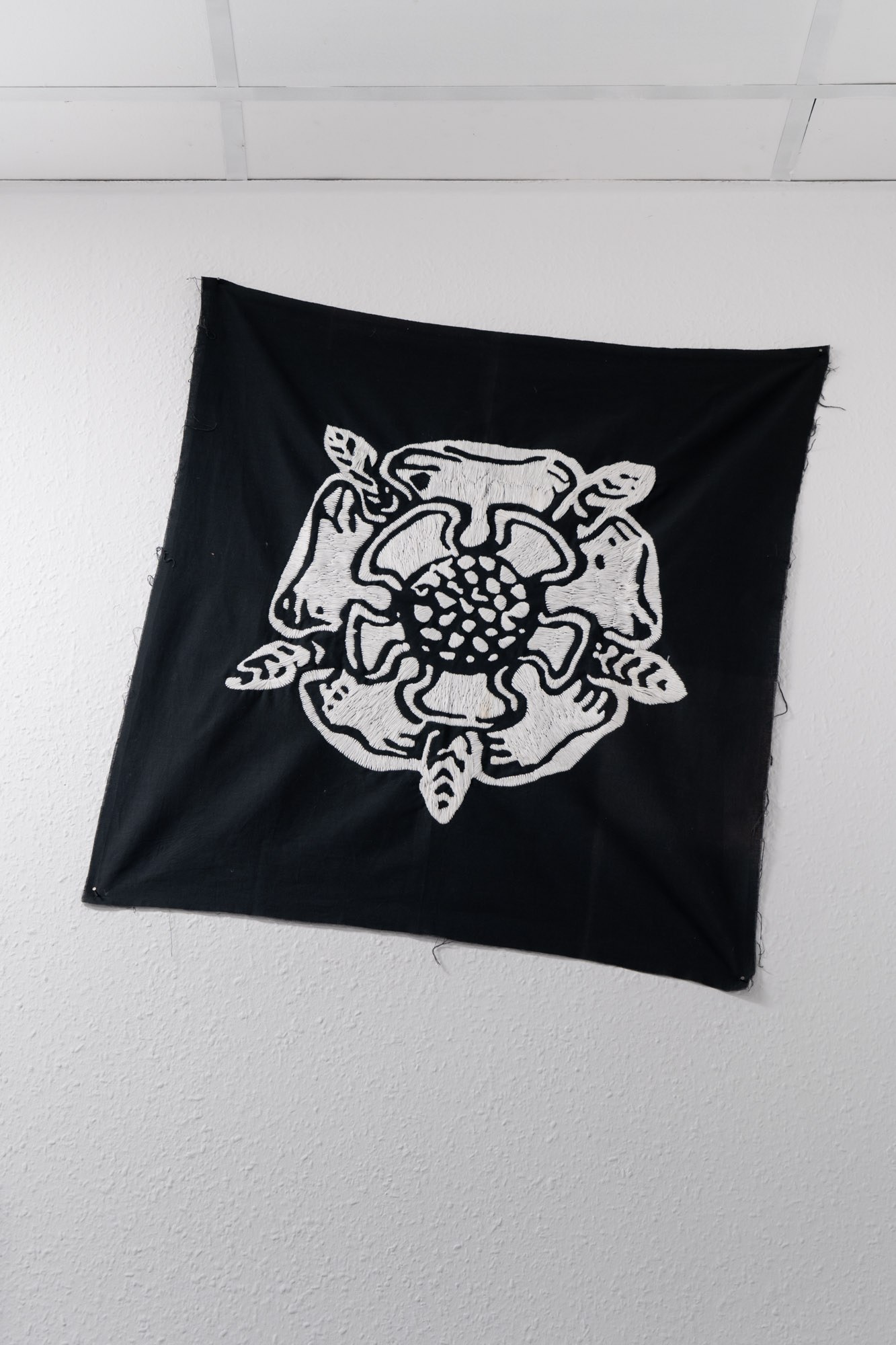
DEATH'S FLAG by Isidora Gilardi in collaboration with Esperanza Rojo / embroidery on cotton / 50 x 50 cm / 2018
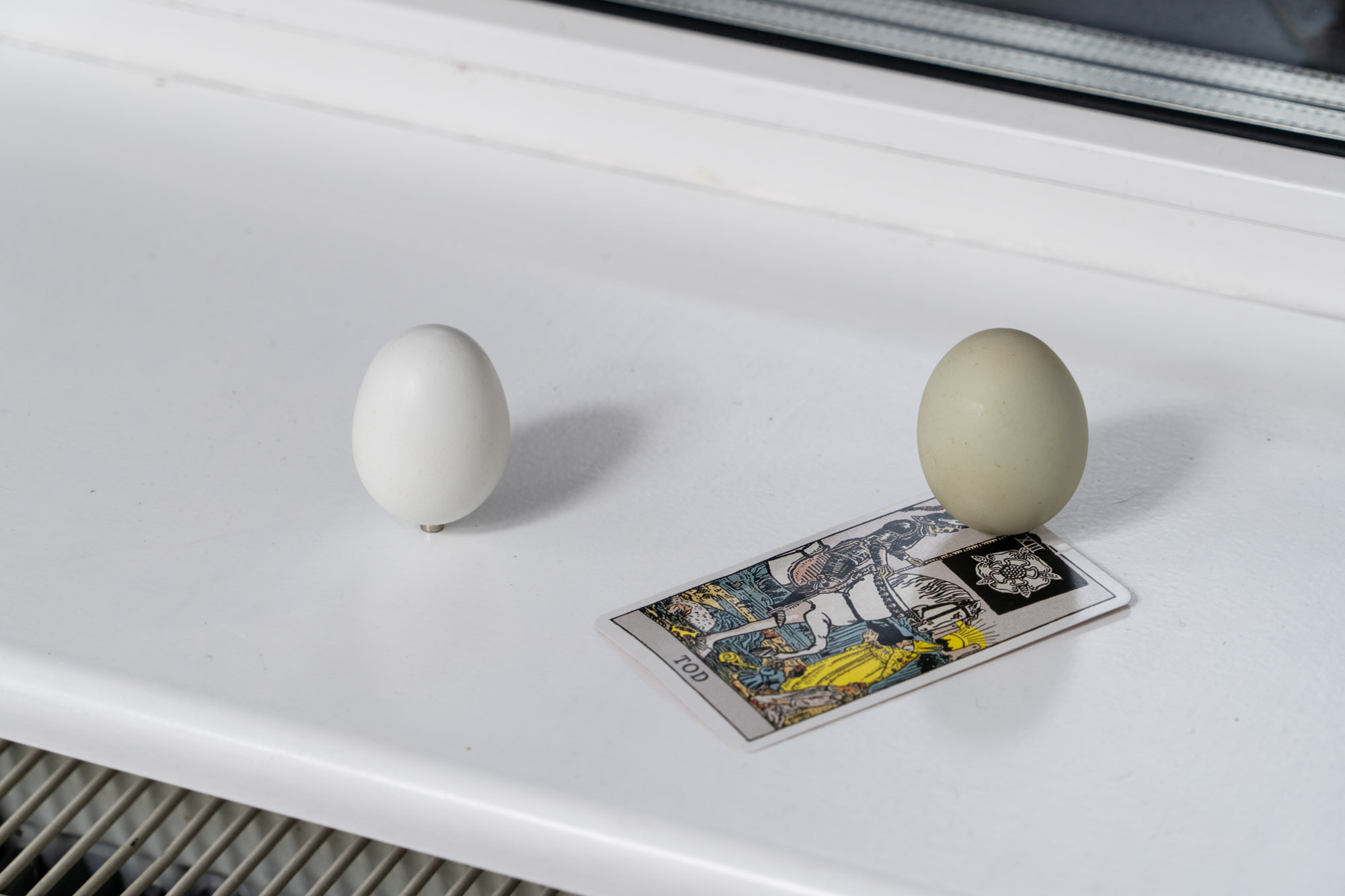
EGGS AND DEATH TAROT CARD by Isidora Gilardi / kollonka hen eggs, tarot card / variable dimensions / 2018
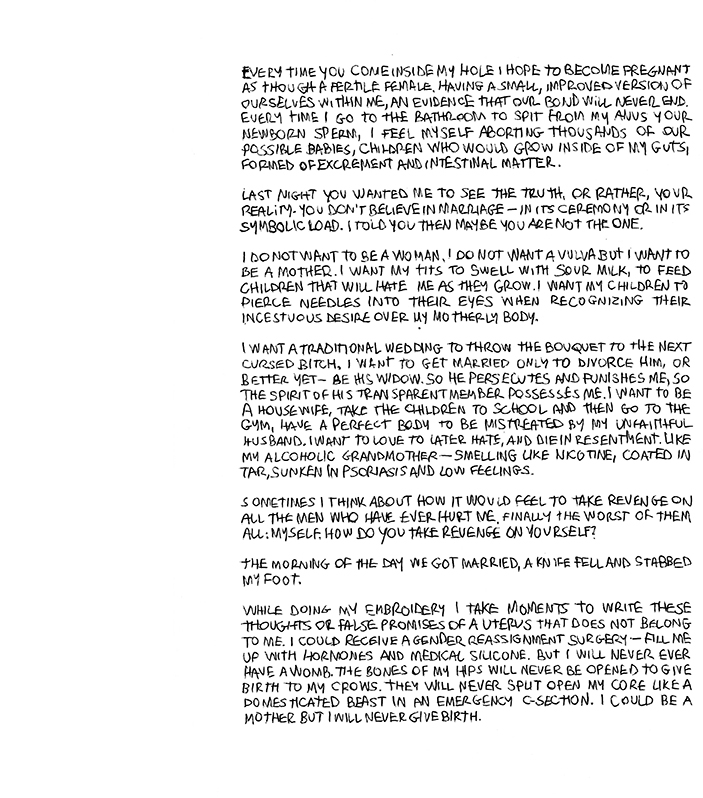
Text by Nicolás Astorga
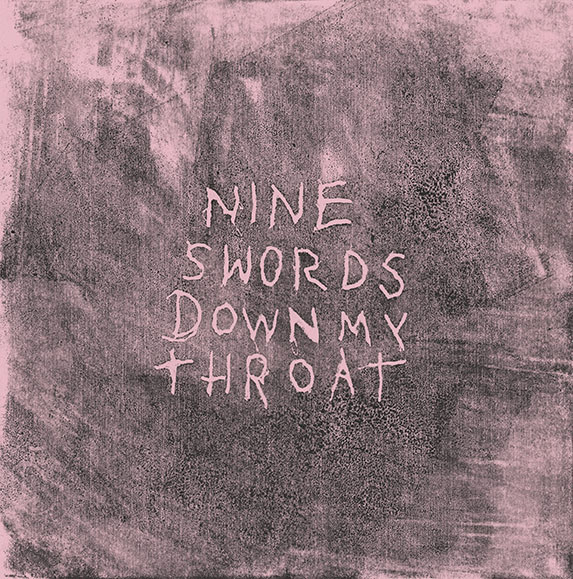
NINE SWORDS DOWN MY THROAT / xylography on paper / 20x20 cm/ 2023
Nine Swords Down My Throat
In sexual mythology, the transition towards the feminine is contemporaneous with the passage from determination to general indetermination. The feminine is not substituted for the mascu- line as one sex for another, according to some structural inversion. It is substituted as the end of the determinate representation of sex, as the flotation of the law that regulates the differ- ence between the sexes. The ascent of the feminine corresponds to both the apogee of sexual pleasure and a catastrophe relative to sex's reality principle.
Jean Baudrillard (trans. by Brian Singer): Seduction, 1979.
I will never forget the day Azealia Banks took to Instagram in response to Kanye West’s infamous self-Nazification – boycotting Adidas, decrying West’s misogyny, his bigoted views, his short height and, this one takes the cake, his “child bearing hips.” In a private text, Nicolás Astorga confesses about similar fantasies relating to his own physique. Call it a thinking exercise, a complex, an unresolved riddle: he wants to become a neglective mother, an impregnated male refusing to give birth. ‘Lithope- dion’ – unborn fetuses withheld in the womb and calcified by the body as a response – ranks amongst his recent Google searches. This exhibition echoes such introspections through a series of meticulously crafted objects; preoccupations, really, aimed at fueling artistic thought excursions that will never make it on display. Nicolás strikes me as the kind of artist who doesn’t just think in order to make but makes in order to confess his thinking. In many ways, that’s pretty rare.
Confessional acts serve as primary sources of comfort in both institutionalized Christianity and psycho- analytic practice. The former underlines a sense of shame, the latter postulates an embrace of one’s own ‘shadow.’ Both use the discursive recounting of past events symbolically, dissecting thoughts whose privileged clearance, debunked, unmasks the real dialectic meaning behind what’s believed to be at stake.
Memories appeal to us not least because they’re somehow foreign ... and yet, at the same time, artifacts that are self-made.
Thinking past the anal (ogy, of) past tense penetration, Nicolás’ work functions as both a confession and a meditation on what it means to symbolically impale. That is true in terms of iconography, mate- reality and simulation. Arrows made of steel pierce through a variety of stones, needles pierce through ritualistically embroidered textiles, iconographic references are charged with motifs of swords, arrows and mythological revenge. Saint Sebastian’s martyred body remains faceless; flattened, its homoerotic Hellenism serves as backdrop to pink stitchings. In a different frame, avenging her former husband by assassinating their own children, Euripides’ Medea is depicted escaping the crime scene atop two flying serpents, encircled by the sun god Helios, from which she originally descends. Elsewhere, the Nine of Swords tarot card, also known as Lord of Cruelty, depicts a distressed figure presumably waking up from a nightmare. Such heavily charged, explicit references, serve to coordinate a grander narrative about moral ambiguity, cruelty, and sexual violence. From a psychoanalytical point of view, they seek to make explicit a kind of libidinal abjection in plural terms. Julia Kristeva writes: “To each ego its object, to each superego its abject.” If we are to consider the weight such visual representations of canonical myths and narratives carry, then juxtapose it with the intimacy and analogous nature of their material execution, we may discover an exhibition about the sexual ego as abject: both indomitable and frail.
The acts of entering, of striking through, of cutting in pieces, of breaking-up find echoes beyond their direct visual representation. Impaling in language form could be considered the act of uttering something inconceivable, vulgar, entirely taboo. As made evident through the titles and uses of font, narrativized statements are departure points for Nicolás’ practice. Vulgarity, an idiom and rhetoric he often employs, is not a question of wording, habitus or class; rather, that of memory space and context. Utterances deemed vulgar are those we feel abashed to hear pronounced, without reason but by sense. They coil around the subconscious, proliferating all the more in contrast to those thoughts, memories and commonplace sayings usually kept at a neat and formal length.
Speaking the unhinged in brute force has a confessional quality to it. Radical honesty, for good or for worse, weaponized or genuine, is indeterminate in that its own extremity forces us to question whether the statement was ever truly meant. Firstly because it’s often impulsive, secondly because of its hyper-bolic nature, its rawness. The most violent of actions and events are often those remaining categorically undeclared.
A wise, canonical figure by the name of Regina George once said: “This girl is the nastiest skank bitch I’ve ever met. Do NOT TRUST HER. She is a fugly slut!”
Here’s another quote. Simone de Beauvoir once wrote about Marquis de Sade – a despotic of the En- lightenment, an aristocratic scoundrel, a vending machine of self-incriminating fictional confessionals, an ambassador of the depraved – that he was, in fact, a moralist. “From a literary point of view, the commonplace-ridden speeches with which he intersperses his debauches finally rob them of all life and all verisimilitude. (...) His wearisome repetitions are tantamount to a purification rite whose repetition is as natural to him as regular confession is to a good Catholic.” Pedestrian English would translate this to: he said things not because he meant or promoted them, but to (mis)use written and spoken language in an entirely different way. A humanist, in the absence of theology or the care of a clinical psychologist, must utilize unequivocal expression and self-doubt to intellectually venture into the shadows, only to return with their spirits, and their individual ethics, undoubtedly compact. You are your own final reas- surance, the ultimate confessional directed towards none other than yourself.
Sometimes it’s the brutal take-down’s that impale our egos, the tell-all’s that leave us speechless, the realization of staggering indeterminacy that makes us doubt ourselves – they are what creates a space for us to look a different way: through the asshole and beyond.
Daniel Moldoveanu

